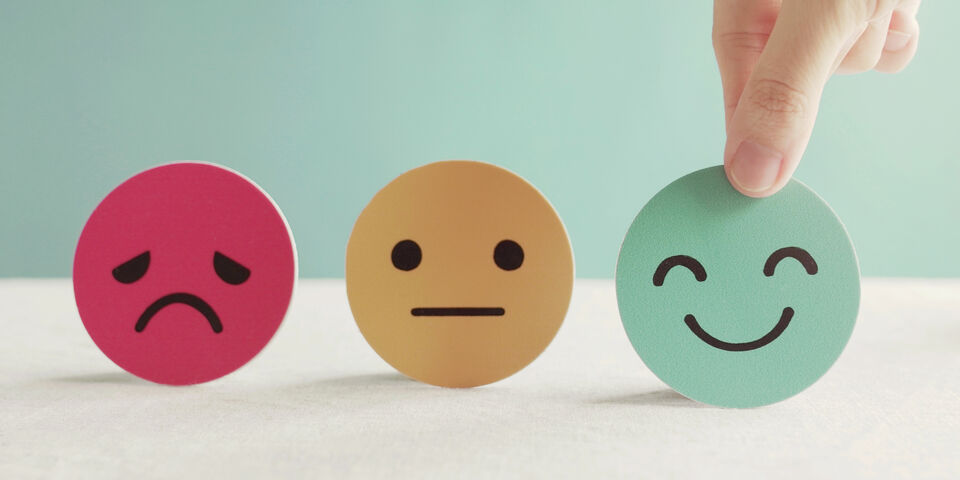IE&IS is keeping tabs on its students' well-being
How would our students score on burnout, loneliness and study motivation during corona? This question was occupying researchers at the Department of IE&IS. They studied the well-being of their students from the moment corona started to impact their lives, i.e. from the third quartile of the last academic year. Now nearing completion, their study entitled Corona Monitoring is taking a full year.
All bachelor's students and master's students at Industrial Engineering and Innovation Sciences were asked to fill in questionnaires. The response rate has topped 35 percent. “Yes, this gives us some insights,” says Ad Kleingeld of the Human Performance Management group, but he and his colleagues Uwe Matzat, Chris Snijders and Rianne Conijn (Technology Interaction group) are drawing no firm conclusions.
Two reports are now available. The first relates to Q3 and Q4, in which students had to switch to online education and their social lives had to contend with the intelligent lockdown. The second report concerns Q1, the quartile after the summer, which saw some relaxation of the rules. A third will cover Q2 of this academic year. The conclusions of the first two reports have been shared within the department and with other universities within 4TU: those of Delft, Enschede and Wageningen.
“We looked at study motivation, exhaustion, loneliness, depression, worry and concentration problems. We always hope to find high motivation and have the other factors scoring low. What we are seeing repeatedly is that 15 percent max. of the respondents check the category 'problematic'. In addition, we sometimes see that the odd student both feels lonely and has low study motivation, but we aren't seeing anything resembling the kind of alarming reports published in the general media.”
A study has also been conducted by the National Center for the Prevention of Stress and Burn-out (NCPSB), which purports to show that more than 80 percent of students are on the verge of burning out. This has been reported in the news, including an article in the national newspaper Algemeen Dagblad. “A fact check in which a renowned burnout researcher re-examined the study revealed that this conclusion cannot be drawn. This has led to newspapers publishing corrections,” says Kleingeld.
Concern
One of the factors under investigation is exhaustion, an aspect of burnout. Two of the eight questions, for example, were: 'How exhausted do you feel after a day spent studying?' and 'How often do you feel emotionally exhausted?' “By way of reply, in Q1 the category ‘often’ was checked by 12 percent. So we should be concerned about 12 percent.”
Kleingeld also sees a ray of light. “One positive - in fact, the only positive we can see compared to the report from before the summer - is that loneliness seems to have declined.” Interpreting this is a challenge, believes Kleingeld. “We suspect it has to do with the reasonably 'open' summer and on-campus education being partially available in Q1. We are curious to find out whether loneliness increased again in January 2021, because we've been back in lockdown for so long. These results aren't yet in.”
Help
With anonymity playing a role, the researchers are unable to offer help directly to students who are in difficulty. Generally speaking, there is considerable help available at TU/e, says Kleingeld. “Help is offered within our department, students are made aware of the academic advisor, student advisor and psychologist, of all whom can offer help. They are able to find help themselves, I think - I hope. IE&IS also offers space for group work in Atlas.”
Kleingeld believes that the program is doing enough and that many students with problems are already on their radar, but he has no supporting evidence. “What I'm hearing from the program management is that, looked at in terms of averages, study progress isn't showing any major problems. The number of credits earned has not fallen drastically this year.”
As a lecturer, Kleingeld has taught courses all year long and his impression is that students in general are dealing well with the situation. “I taught an elective where I found the students more highly motivated than ever. That came as a pleasant surprise, but it doesn't diminish the fact that some students score very poorly on well-being.”
Short lines
How IE&IS students are faring is also under the watchful eye of Bauke Wijnands, education commissioner of study association Industria. He finds the quarterly meeting with the education councils particularly valuable. “We have six cohorts (each year group of the bachelor's plus three master's programs), each comprising eight students, who keep me abreast of the well-being of our students. As the corona year unfolded, it became clear that the critical factor is not the course content but the way in which the lecture handles online education. Well-being is starting to become a problem; people's capacity to bend (as opposed to break) is depleted. In response to this, in February a master class on well-being was organized in cooperation with ESA. The talk given by student psychologist André Rozendaal was well received by 120 students.”
Our first-years talk with their mentor and these mentors are supervised by an academic advisor. Whenever a meeting is held, the education commissioner will always drop in. “It is a nice direct way of communicating - even online.”
Industria is currently busy organizing support groups on well-being that will address topics like procrastination and assertiveness. “The first workshop given by student diversity officer Lara Hofstra has already been held, on Teams,” says Wijnands. “Those present joined in enthusiastically and have also been invited to attend the next workshops scheduled in Q3, in which Lara will ask some critical questions in order to get the students actively considering their problems.”
Postscript | After the successful pilot at IE&IS, the master class will be rolled out at each department. The first sessions at Mathematics and Computer Science (M&CS) have already taken place.




Discussion